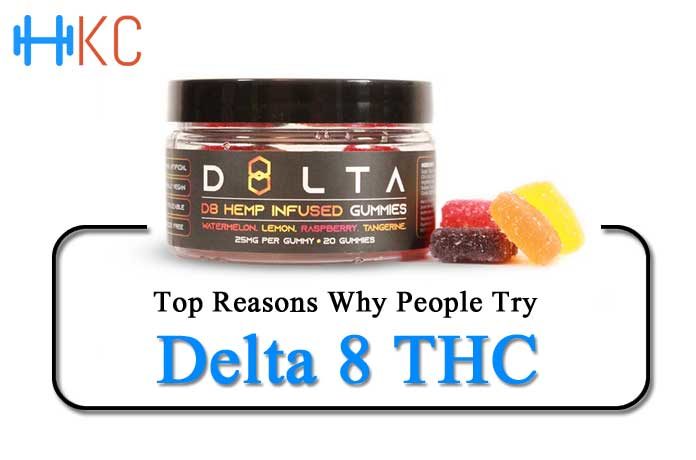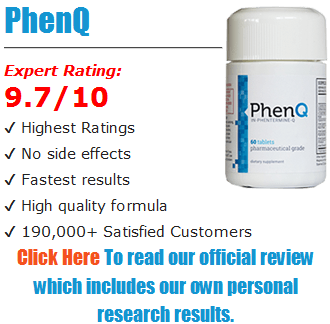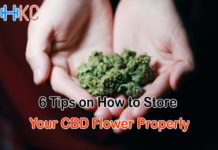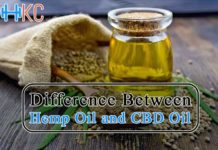Cannabis reform is in the fast lane, and more and more everyday people are starting to know about the benefits of this wonderful plant. Now, people can buy delta 8 gummies and tinctures, CBD lotions, and nearly every cannabis product you can imagine easily online and in various outlets around the country.
One of the consequences of spreading awareness is that consumers have also become aware of the array of cannabinoids in the plant, including THC, CBD, CBG, CBC, and others.
Some users may even go a step further and know that ‘THC’ is just an umbrella term that refers to a group of related compounds with similar, but subtly different, properties. They might know, for example, that the proper name for the variant of THC that gets you high when you smoke marijuana is delta 9 THC. That said, very few people know about the many other kinds of THC out there. They might not even know that delta 9 THC isn’t the only psychoactive variant.
Let’s consider edibles for a minute. You take edibles, you get high. It’s that simple. It’s the same as smoking, right? Well, no, not quite. Sure, the high you get from an edible may feel similar to the one you get from smoking, but there are some differences that are hard to ignore. For example, edible highs are more intense cerebrally and are also heavy on the body. In fact, so intense is the high you get from edibles that you might even experience hallucinations. People are often advised to be careful about how much of an edible they take to avoid experiencing the downside of its high, such as paranoia and anxiety attacks.
So why is the high from an edible so notably different than the high from smoking? The answer is that you’re not getting high on the same THC. The form of THC in most edibles is 11hydroxy-THC. This is just one of them. There are very many variants of THC out there. Cannabis researchers have known about most of them since the 60s. It is only recently that some of them are starting to make their way into the mass market, giving delta 9 THC a run for its high. One of the latest ones to enthrall researchers and the public alike is delta 8 THC. That’s what we’re going to talk about today.
What is delta 8 THC?
There is a lot of special terminology surrounding cannabis, and much of it is new to consumers, often leaving them more confused than enlightened. It’s not just that, though. Research is still new, and the whole science of studying cannabinoids isn’t as developed as others. As a result, the terms keep evolving, further complicating the situation.
One of the trends you’ll see is that people have begun using initialisms to name compounds instead of their full names. ‘CBD’ stands in for cannabidiol, ‘THC’ stands in for tetrahydrocannabinol, ‘CBG’ stands for cannabigerol, and so on. This is definitely convenient. However, it can eliminate the nuance surrounding the sub-variants of these compounds. The term ‘THC’ in no way tells you whether it’s delta 8 or 9 THC.
Speaking of delta 8 THC, the ‘8’ is a reference to the placement of a special chemical bond, known as a double bond. That double bond is on the 9th carbon atom in the molecular chain in delta 9 THC and on the 8th carbon atom in delta 8 THC. They are just similar enough to both be THC. However, they are also wildly different in many ways.
For example, delta 8 THC occurs rarely in nature, with very small amounts in hemp and cannabis plants. Instead, it is synthesized in labs via special breeding and extraction methods.
What is a delta 8 high like?
So now that you know that there are many variants of THC out there, your next question might be why it matters at all. It does because the experience is not quite the same. Delta 8 THC has psychoactive effects. In that sense, it differs from CBD. However, its psychoactive effects are not quite the same as those of delta 9 THC. Or at least they don’t kick into the same degree.
Delta 8 THC is known to be psychoactive, more for some consumers than others. First-time users – those who have never tried any form of THC – won’t have anything to compare the high to, and so it will likely feel intense for them.
For those who have used delta 8 THC, it will have psychoactive effects, but it won’t be as intense as those of delta 9 THC. You can think of it as a sort of ‘Kushite. It offers all of the benefits and psychoactive effects of THC, but with the psychoactive effects toned down a little. It still stimulates your appetite, relaxes you, and induces euphoria. Depending on what other cannabinoids and terpenes it is mixed with, it can even help you be alert and focus, which is great for those who don’t want cannabis products to get in the way of their work.
Some of the effects you might experience when taking delta 8 THC include the below:
- You will feel weightless, almost like you’re floating
- Your mood will be elevated and you will feel chill and mellow
- Your appetite will be stimulated
- You may even feel more clear-headed, and your focus and energy levels might be enhanced
Why do users try delta 8 THC?
Alright, so from the description above, it seems delta 8 is delta 9’s underwhelming cousin. Why would anyone want to try it? As it turns out, there are a host of reasons.
For starters, delta 8 can be a great bridge for those who want to try cannabis but are afraid to. It can get them used to THC before they move on to the serious effects of delta 9 THC. Some users particularly don’t like CBD because, while it has all these wonderful benefits, sometimes you just a bit of a high, and CBD doesn’t offer that.
You might also be anxious about trying delta 9 THC thanks to its controversial legal status. In that case, delta 8 THC is a great alternative. So long as the delta 8 THC was extracted from hemp with less than 0.3% THC content, it’s legal.
There are also numerous benefits to trying out delta 8 THC, apart from its Goldilocks-like psychoactive effect. Here are some of the most popular ones that attract new consumers to this wonder drug:
- It has neuroprotective properties, helping your brain produce a neurotransmitter known as acetylcholine. This neurotransmitter enhances your cognition, memory, and neuroplasticity. It has even been known to enhance arousal, leading to higher libido.
- It has the ability to stimulate your appetite, which is good news for poor eaters.
- It has antiemetic effects. Delta 8 has repeatedly been shown to eliminate nausea, especially in children going through chemotherapy.
- It relieves pain. While analgesic properties are common in cannabinoids, delta 8 THC comes without the side effects of delta 9 THC, such as anxiety and paranoia.
- Speaking of anxiety attacks, delta 8 THC relieves you of your anxiety. Its anxiolytic properties help the body better regulate its own anxiety and pain. You feel relaxed and calm.
Conclusion
As you can see, there is a lot to love about delta 8 THC. Not only can it offer you many of the benefits of CBD and THC, but it also has a less intense but still enjoyable high. Don’t take our word for it, though. Buy some delta 8 gummies and try it for yourself!















